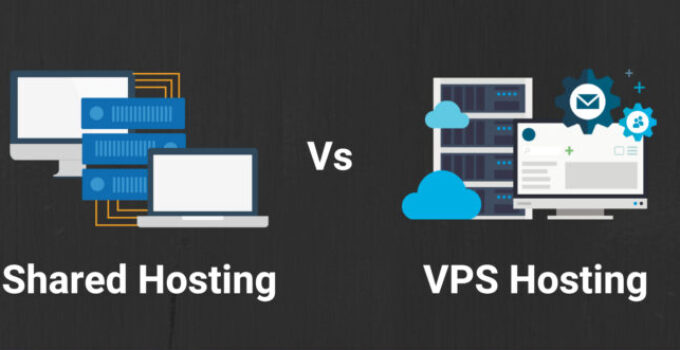Regardless of whether you want to start an online business or a blog, you would need to get your website on the Internet. But how, you might ask yourself? Well the answer is by uploading it to a server provided to you by a web hosting company. A web server is the space that will both contain and accommodate your website’s resources while also making them available for everyone with access to the Internet to visit. Imagine building a house – selecting the appropriate type of web hosting is similar to choosing the best possible foundations for your home as that is going to be the place where all of your furniture (or in the case of web hosting – resources) will be stored. In terms of the hosting types, the most popular amongst users and the online community are shared hosting, virtual private servers and dedicated servers. Given that the general price for dedicated servers is quite high, we will be leaving them out of this list while focusing on the debate between shared hosting and virtual private servers, most commonly referred to as VPS.
What is shared hosting and how does it work?

Source: searchenginejournal.com
Shared hosting is the most common type of hosting. It features a single server which plays host to multiple websites. Given that they all occupy the same space, the websites also share the server’s resources, meaning that occasional increases in traffic for one site can negatively impact the performance of other websites on the web server due to increased resource consumption. The simple way to explain this is to imagine living in a shared accommodation where you would need to share rooms such as the kitchen or the shower with others. Because of this, shared hosting is the cheapest type of web hosting that you can get and it is recommended for smaller projects like starting a blog or creating a digital portfolio. It is also perfectly suitable for small regional websites and projects, even for local brick and mortar stores. However, if you own an online store or if you are a company that expects a lot of web traffic and information exchange, then you should avoid shared hosting due to the negative impact that it could have on your business in terms of excessive loading times, system crashes and overall slow website speed. Additionally, you will not be able to have root access to your website and you will, consequently, also not be capable of installing any additional server applications. However, seeing as how it is the cheapest type of web hosting, shared hosting is a good overall option to go for depending on your needs.
What is a VPS and is it better than shared hosting?

Source: thoughtco.com
A VPS, short for a virtual private server, utilizes virtualization technology in order to create a virtual machine with its own independent environment and resources on a given server. In order to illustrate this, you would need to imagine an apartment block, where each individual has their own flat with its own furniture and separate rooms (or resources in the case of web hosting). In addition to having their own personal resources, all virtual private servers have a number of other beneficial advantages. Firstly, you gain full administrative control over every aspect of your server including its processing power, active memory and storage, meaning that you can manually adjust any of them to meet your website’s requirements. Because of this virtual private servers are regarded as easily scalable, meaning that additional resources can always be added at a later stage should you find yourself having to manage substantial amounts of traffic. Secondly, you also have the ability to install custom applications and software onto your server in order to accommodate any additional website requirements or work processes. Thirdly, you are also granted full root access to your website, allowing you to manually alter and adjust its content, code, files and general system and as mentioned before – installing server applications. Judging by all of these features, you would think that a VPS would be quite costly in comparison to shared hosting. And while a VPS is slightly more expensive, it is still quite cheap in comparison to other types of hosting such as dedicated servers. Ultimately, you should go for a VPS if you want to make sure that you will be able to expand if your online business or store takes off or if you would like to build for the future and allocate a larger budget for your website while still starting out. In terms of disadvantages, using a VPS does require some prior technical knowledge, however, this is not necessary as most hosting providers do offer full-time support and additional help with setting up and managing your server. Additionally, some hosting companies offer different payment methods for your virtual private servers. For example, VPSBG enables you to pay for your services using Bitcoin and Litecoin, meaning that you can pay for your server in a secure and private manner, which is also a good alternative to traditional transaction methods.
VPS or Shared Hosting?

Source: b2evolution.net
The decision is ultimately up to you. Both have their advantages and drawbacks and are both designed with different expectations and functions in mind. Overall, if you want to have a website that is not expected to generate a lot of traffic or if you are a beginner and have no prior experience with web hosting, shared hosting might be the more beneficial and optimal choice. However, if you know exactly what you need or you have a growing online business or store, then going for a virtual private server could potentially help you further build up and support your business. In terms of price, shared hosting is the cheapest option that you can go for, whereas a VPS is a bit more expensive due to all of the additional features that it can provide you with. With all of that said, the final decision is up to you just make sure to consider all of the mentioned factors in order to make the optimal and educated choice.







